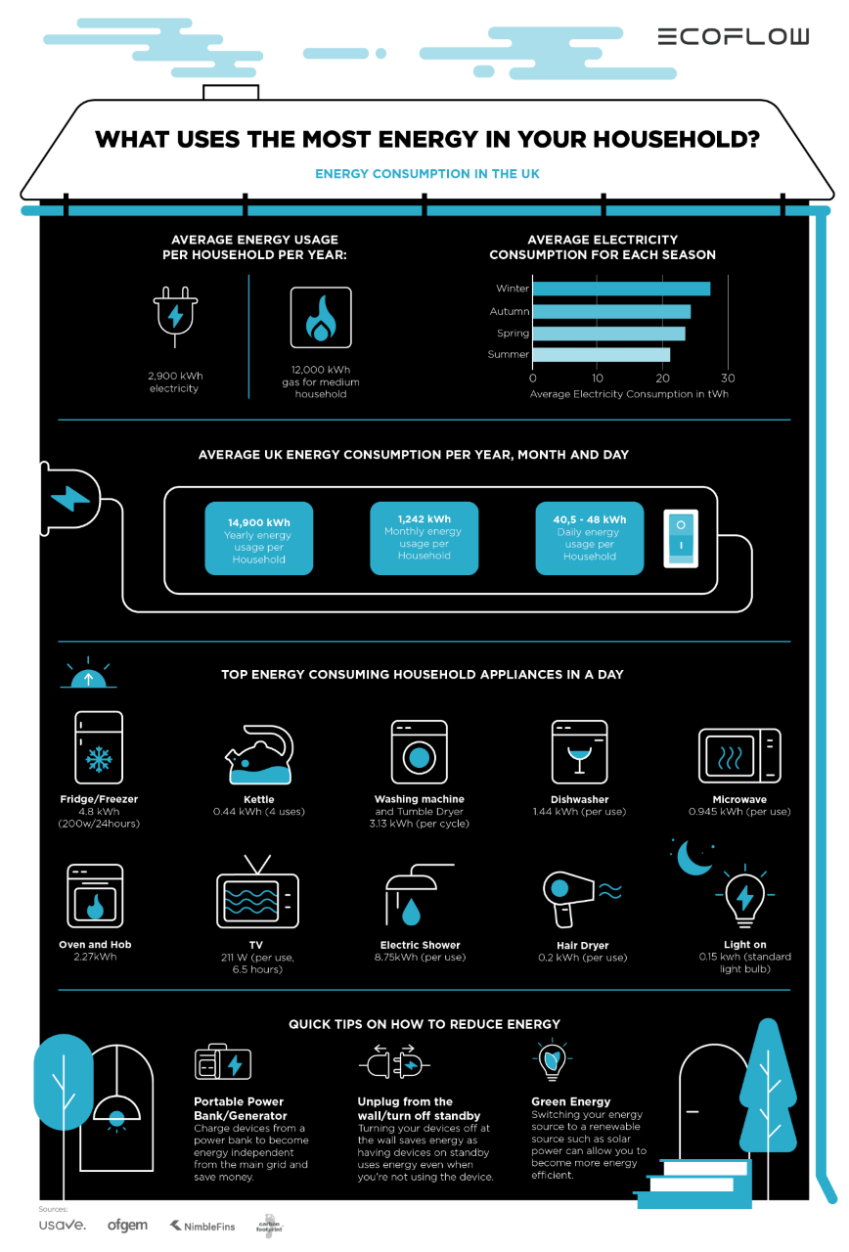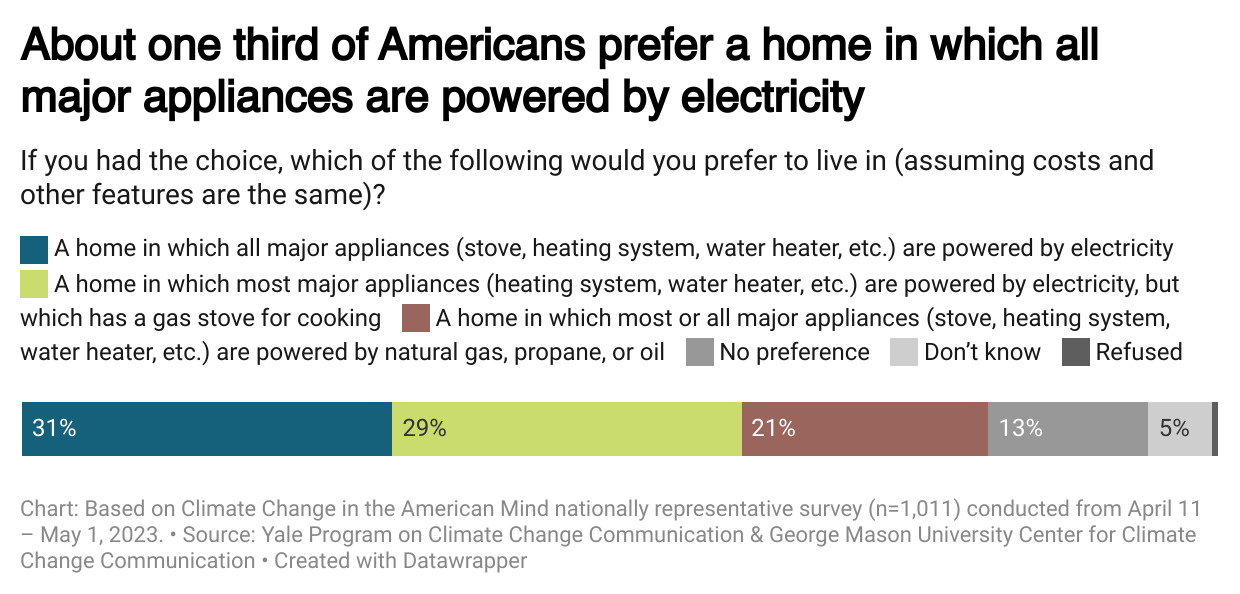Household appliances impact the environment significantly. From energy use to waste, they leave a footprint.
Many homes rely on appliances daily. Refrigerators, washing machines, and ovens are common. They offer convenience but have a hidden cost. Energy consumption and waste contribute to environmental harm. Understanding this impact is crucial. It helps in making eco-friendly choices.
Using energy-efficient appliances can reduce damage. Awareness leads to better decisions. Everyone can play a part in protecting the environment. This article explores how household appliances affect nature. It highlights key areas of concern. It also suggests ways to minimize harm. Together, small changes can make a big difference. Let’s delve into the details and find solutions.
Introduction To Household Appliances
Household appliances play a big role in our daily lives. They make chores easier and save time. Appliances like refrigerators and washing machines are common in homes. But, these appliances also impact the environment. Understanding their evolution and current trends helps us see their environmental effects.
Historical Evolution
Household appliances have evolved over the years. In the early 1900s, people used manual tools for household tasks. The first electric appliances appeared in the 1920s. They were basic and expensive. Over time, technology improved, making appliances more efficient and affordable. By the 1950s, appliances were common in many homes. This changed how people lived and worked.
The introduction of electric appliances reduced manual labor. It also increased energy consumption. The demand for electricity grew as more homes bought appliances. Early models used a lot of energy. They were not designed with environmental impact in mind. The focus was on convenience and efficiency.
Current Trends
Today, household appliances are more advanced. They use less energy and are more environmentally friendly. Smart appliances are popular. They connect to the internet and offer convenience. These appliances help save energy by operating efficiently. Many new models have eco-friendly features. They reduce water and energy usage.
Energy efficiency is a key trend in appliance design. Manufacturers aim to lower environmental impact. Energy Star ratings help consumers choose efficient products. Recycled materials are used in making modern appliances. This reduces waste and conserves resources.
The shift towards eco-friendly appliances reflects growing environmental awareness. People want to reduce their carbon footprint. Choosing energy-efficient appliances is one way to help the planet.
Energy Consumption
Household appliances play a significant role in energy consumption. They account for a large portion of electricity use in homes. Understanding their impact on the environment is crucial. Lowering energy use can reduce our carbon footprint.
Electricity Usage
Appliances like refrigerators and washing machines use a lot of electricity. These machines run daily, increasing energy bills and environmental impact. Old appliances often use more electricity. Newer models tend to be more energy-efficient. It’s important to be aware of how much electricity each appliance consumes.
Efficiency Ratings
Efficiency ratings help identify energy-saving appliances. They provide a clear indicator of energy use. Appliances with better ratings consume less electricity. This not only saves money but also benefits the environment. Checking these ratings before buying can lead to informed decisions. Opting for higher-rated appliances helps reduce overall energy consumption.
Carbon Footprint
Household appliances play a big role in our carbon footprint. They consume energy and resources, impacting the environment. Understanding this helps us make better choices.
Emissions From Manufacturing
Manufacturing appliances generates emissions. Factories use energy and produce waste. This contributes to greenhouse gases. Every step, from raw materials to assembly, adds emissions.
Transporting appliances also produces carbon emissions. Vehicles burn fossil fuels during delivery. Efficient manufacturing processes can reduce these emissions. Choosing eco-friendly brands makes a difference.
Usage Emissions
Every appliance uses energy at home. This energy often comes from fossil fuels. As a result, using appliances contributes to our carbon footprint.
Old appliances consume more energy than new ones. This means higher emissions. Energy-efficient models reduce emissions. They save money and protect the environment.
Simple actions can lower usage emissions. Turn off appliances when not in use. Use them wisely to conserve energy. Small changes lead to significant results.

Credit: www.electronicspecifier.com
Resource Depletion
Resource depletion is a pressing concern as our dependence on household appliances grows. Every time you use your washing machine or refrigerator, you might not realize the broader environmental impact. Have you ever wondered how these everyday conveniences contribute to the exhaustion of our planet’s resources?
Raw Material Extraction
The journey of your appliances begins with raw material extraction. Metals like iron, copper, and aluminum are mined to manufacture your favorite gadgets. This process is not only energy-intensive but also disrupts ecosystems. Imagine the sprawling mines and the machinery involved; they consume vast amounts of energy and leave scars on landscapes.
Think about your smartphone, for instance. Mining for rare earth elements used in electronics leads to deforestation. It’s a domino effect—one extraction leads to another, depleting resources further. Next time you buy a new appliance, consider the materials and the environmental footprint they leave behind.
Water Usage
Water is another crucial resource affected by household appliances. Appliances like dishwashers and washing machines use substantial amounts of water. Have you ever paid attention to how much water your dishwasher uses in a single cycle? It’s eye-opening!
Water scarcity is becoming a global issue. What if every household cut down its water usage by just a little? The impact would be enormous. You can make a difference by choosing appliances with efficient water usage. Look for models with eco-friendly settings. It’s a simple step that can lead to meaningful change.
Resource depletion is a challenge we face together. By understanding the impact of household appliances, you can make informed choices that help preserve our planet. What small change will you make to contribute to a healthier environment?
Waste Generation
Household appliances provide convenience but contribute to waste generation. As technology advances, many appliances become obsolete quickly. They end up in landfills, creating significant environmental challenges. Disposing of old devices improperly can harm the planet. Understanding waste generation is crucial for a sustainable future.
Electronic Waste
Electronic waste, or e-waste, is a growing concern. Appliances like refrigerators and microwaves contain harmful materials. These include lead, mercury, and cadmium. Improper disposal leads to soil and water contamination. E-waste is one of the fastest-growing waste streams worldwide. Its management is crucial to protect the environment.
Recycling Challenges
Recycling electronic waste presents several challenges. Many appliances are not designed for easy recycling. They contain mixed materials that complicate the process. Lack of recycling facilities further exacerbates the problem. Consumers often lack awareness about proper disposal methods. This results in low recycling rates and increased waste.
Impact On Air Quality
Household appliances play a big role in air quality. Many appliances release harmful substances into the air. These pollutants can affect both outdoor and indoor air. Understanding their impact helps us make better choices.
Pollutants Released
Common appliances like gas stoves and heaters release pollutants. They emit carbon monoxide, nitrogen dioxide, and volatile organic compounds. These substances can harm the environment. They contribute to air pollution and climate change.
Even refrigerators and air conditioners can be culprits. They may leak refrigerants into the air. These gases are potent greenhouse gases. They have a strong impact on global warming.
Indoor Air Effects
Indoor air quality suffers from appliance use. Cooking with gas stoves increases indoor pollutants. It can lead to higher levels of nitrogen dioxide inside homes. This may cause respiratory problems for residents.
Other appliances like dryers and ovens also affect indoor air. They can release small particles and chemicals. These can irritate the lungs and eyes. Regular use without proper ventilation worsens the air quality indoors.
Improving ventilation reduces indoor air pollution. Using appliances wisely can help maintain healthier air. Being aware of their impact is key to protecting our environment.
Societal Implications
Household appliances play a significant role in modern life, offering convenience and efficiency. But, have you ever paused to consider their impact on society? Our daily reliance on these devices carries implications beyond the environmental footprint. As you navigate through your daily tasks, the ripple effects of using appliances permeate various aspects of our society, from influencing consumer behavior to shaping economic patterns.
Consumer Behavior
Every time you purchase a new appliance, you make a choice that reflects consumer trends. Do you opt for eco-friendly options or just the cheapest available? Your decisions contribute to a larger picture of demand and supply, ultimately influencing manufacturers’ production strategies. Are you aware of how your choices can drive innovation towards more sustainable products? This awareness can shift the market towards better environmental practices.
Economic Considerations
The economic implications of household appliances are profound. Consider how appliances affect energy consumption and utility bills. High-energy appliances can lead to increased costs, impacting household budgets. Have you thought about the economic benefits of investing in energy-efficient devices? Long-term savings can be significant, benefiting not just you, but the broader economy through reduced energy demand.
Moreover, the production and disposal of appliances create jobs and drive economic activity. How does this balance with environmental concerns? As society becomes more aware, the demand for green technologies can generate new economic opportunities, fostering innovation in sustainable manufacturing.
While household appliances ease our daily lives, they also carry societal implications that are worth pondering. Your choices as a consumer can influence market trends and economic patterns, shaping a more sustainable future. What steps will you take to ensure your appliance choices reflect a responsible and informed approach?

Credit: climatecommunication.yale.edu
Sustainable Alternatives
Household appliances play a big role in our daily lives. They also have a huge impact on the environment. Choosing sustainable alternatives can help reduce this impact. This means selecting appliances that use less energy and have a smaller carbon footprint. Many companies now design eco-friendly and energy-saving appliances. Let’s explore some options.
Eco-friendly Designs
Eco-friendly designs focus on reducing environmental harm. They use sustainable materials and minimize waste. For example, some appliances use recycled metals and plastics. This reduces the need for new raw materials. It also decreases landfill waste. Many eco-friendly appliances are also designed to last longer. This means fewer replacements and less waste.
Energy-saving Technologies
Energy-saving technologies help lower electricity use. They reduce the carbon footprint of household appliances. Look for appliances with energy-efficient labels. These labels show that the appliance uses less power. Smart technology can also play a role. Some appliances adjust their energy use based on need. For example, smart refrigerators can optimize cooling during off-peak hours. This helps save energy and money.
Future Directions
Household appliances have a significant impact on the environment. As technology advances, the focus shifts towards making these appliances more eco-friendly. Future directions in appliance design and policy changes aim to reduce environmental harm. This transformation is essential for sustainable living.
Innovations In Appliance Design
Manufacturers are creating appliances that consume less energy. Energy-efficient models use advanced technologies to minimize power usage. This innovation helps reduce carbon footprints. Smart appliances adjust settings based on user habits. They optimize energy use without sacrificing performance. New designs focus on recyclable materials. This reduces waste and promotes sustainability. Compact designs save space and resources. Smaller appliances require fewer materials and less energy. These changes reflect a commitment to a greener future.
Policy Changes
Governments are implementing stricter regulations on appliance energy use. These policies encourage manufacturers to produce eco-friendly products. Energy labels guide consumers towards efficient choices. Incentives promote the purchase of sustainable appliances. Tax rebates make eco-friendly options more affordable. Policies support research into new technologies. Funding helps develop groundbreaking solutions. Collaboration between public and private sectors drives progress. Joint efforts ensure that innovation meets environmental goals.

Credit: www.sciencedirect.com
Frequently Asked Questions
How Do Appliances Affect The Environment?
Appliances consume energy and resources, leading to greenhouse gas emissions. Older models may use harmful substances. Efficient appliances reduce energy consumption, minimizing environmental impact. Recycling old appliances prevents toxic waste and conserves materials. Choosing eco-friendly options supports sustainability and helps protect the planet.
How Do Household Items Affect Climate Change?
Household items contribute to climate change through energy use, waste, and emissions. Appliances consume electricity, increasing carbon footprints. Non-recyclable products create landfill waste. Cleaning chemicals release harmful gases. Reducing energy usage, recycling, and choosing eco-friendly products can mitigate their impact on the environment.
How Modern Appliances Adversely Affect The Environment?
Modern appliances increase energy consumption, leading to higher carbon emissions. Their production and disposal contribute to pollution. Non-renewable materials used in appliances harm ecosystems. E-waste from outdated appliances contaminates soil and water. Excessive use of appliances strains natural resources, impacting biodiversity.
Reducing usage can mitigate environmental damage.
How Does Household Energy Affect The Environment?
Household energy consumption increases greenhouse gas emissions, contributing to climate change. Non-renewable energy sources deplete natural resources. Using energy-efficient appliances and renewable sources reduces environmental impact, conserving resources and decreasing pollution.
Conclusion
Household appliances impact the environment in many ways. Energy use and waste are key factors. Old appliances consume more energy, increasing carbon footprints. Efficient models save energy and reduce harm. Recycling helps manage waste. Think twice before disposing of appliances.
Repairing and reusing items prolong their life. Reduce, reuse, and recycle are crucial steps. Small changes lead to big environmental benefits. Being mindful of choices can protect the planet. Choose wisely and act responsibly. Every action counts. Make a positive difference today for a better tomorrow.










